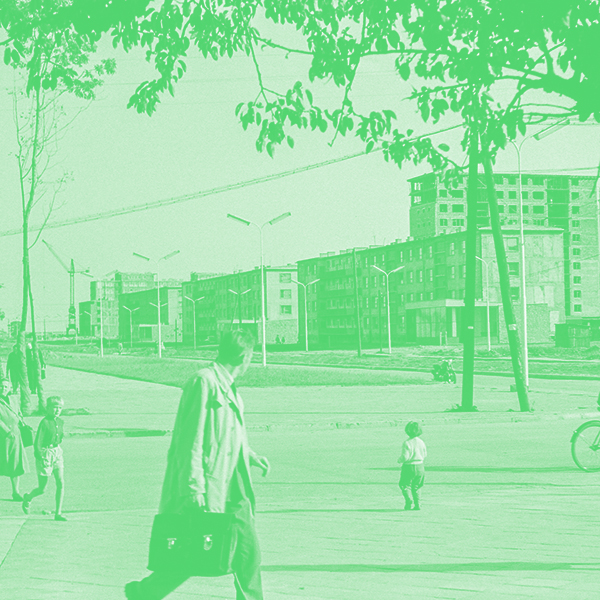He was born in 1921 in Trzemeszno, Greater Poland Voivodeship, and died in 2008 in Tychy. After WW2, he moved to Szczecin to work for the local Municipal Construction Company, from which he was transferred to Tychy in 1954 to work for the newly established Municipal Construction Group – Nowe Tychy. Following several transformations over the years, the company was renamed in the 1970s as General Construction Combine GOP-South, and this was the company Kubski worked for until his retirement in 1981.
Zygmunt Kubski and his family settled down in Tychy's Housing Estate B. From 1954 to 1989, he documented the construction of several Tychy housing estates, e.g. B, C, D, E, F, H, M, O and W, including site organisation, implementation of new technologies, construction machines and equipment, training, construction and transport facilities, barracks housing and land development. He often focused on portraying builders, their hard labour and the their working conditions. He recorded the changing spatial layout and architecture of the city, the social lives of its residents, cultural events and phenomena, as well as local and national ceremonies.
He created a unique collection of history-themed and everyday-life photographs by recording images on black-and-white photographic film, which he personally developed and exposed in his home darkroom. The collection of photographs (positives and black-and-white negatives) totalling about 4500 items was donated to the Museum in 2015 by his family.
